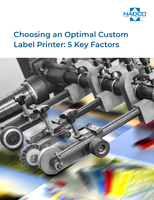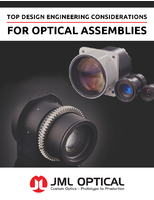Agilent Technologies Introduces CAN/LIN Option for 6000 Series Oscilloscopes that Helps Automotive Engineers Find Design Problems Faster
Share:
PALO ALTO, Calif., May 1, 2006 -- Agilent Technologies Inc. (NYSE: A) today introduced an automotive triggering and real-time decode option for its 6000 Series oscilloscopes that enables automotive engineers to gain insight into their CAN/LIN-based designs. The N5424A CAN/LIN option helps designers find and debug errors and signal integrity problems faster than they can with any other oscilloscope-based solution on the market today.
CAN (controller area network) and LIN (local interconnect network) serial buses are used to route electronic signals between automotive subsystems. The harsh environment in automobiles makes these signals susceptible to signal integrity problems, which can create errors during critical communication cycles.
Agilent's CAN/LIN option for the 6000 Series oscilloscopes features hardware-accelerated decode of CAN and LIN serial buses to produce the industry's fastest decode update rates. Competitors' oscilloscope solutions with CAN triggering and protocol decode use post-processed software techniques to decode CAN frames. Using these software techniques, waveform- and decode-update rates tend to be slow (sometimes seconds per update), especially when engineers use deep memory, which they do for capturing packetized serial signals.
With Agilent's hardware-based solution, waveforms are updated at up to 100,000 real-time waveforms per second, and hex-level serial decode is updated faster than the human eye can discern. The waveform update rates and superior display quality of the 6000 Series oscilloscopes, plus the fast decode update rates of the CAN/LIN option, enable designers to find and debug random and intermittent errors and signal-integrity problems that they could easily miss using other decode tools.
The Agilent N5424A CAN/LIN option allows engineers to trigger on either standard or extended CAN message IDs, including the message ID of a remote transfer request frame. It supports triggering on a data frame, and allows engineers to specify message IDs, data and data length for filtering messages of interest. Triggering on active error frames also is supported.
Agilent's 6000 Series mixed signal oscilloscopes (MSOs) are a perfect fit for verifying and debugging electronic automotive designs that include a combination of analog sensor inputs, long-haul serial traffic and higher-speed digital signals found in electronic control units. MSOs provide an integrated way to capture and correlate multiple analog and digital signals of various speeds with deep memory. Agilent's 6000 Series scopes are the only portable scopes on the market that provide both CAN and LIN triggering and decode. Agilent offers this optional capability in all four-channel models in the 6000 Series oscilloscopes with bandwidths ranging from 100 MHz up to 1 GHz. No other scope vendor offers this capability in a lower-priced 100-MHz model.
U.S. Pricing and Availability
The Agilent N5424A CAN/LIN automotive triggering and real-time decode option for 6000 Series oscilloscopes is priced at $1,500. The option is available now. Information about the Agilent N5424A is available at www.agilent.com/find/scopes.
About Agilent Technologies
Agilent Technologies Inc. (NYSE: A) is the world's premier measurement company and a technology leader in communications, electronics, life sciences and chemical analysis. The company's 20,000 employees serve customers in more than 110 countries. Agilent had net revenue of $5.1 billion in fiscal 2005. Information about Agilent is available on the Web at www.agilent.com.




